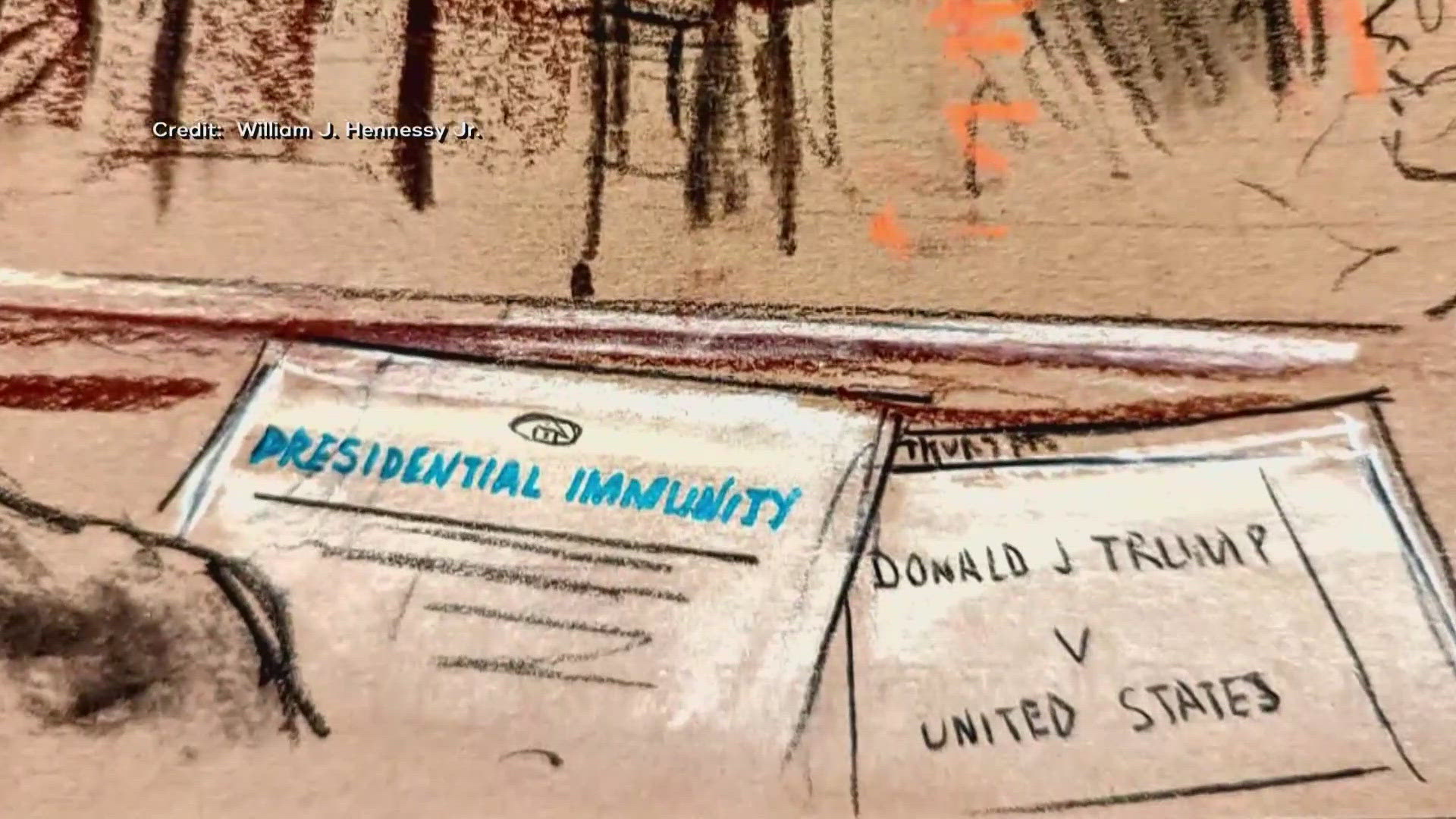WASHINGTON — The Supreme Court appeared unlikely Thursday to endorse former President Donald Trump’s most sweeping claims of presidential immunity, while also signaling any decision could result in further delay to his pending trial on election fraud charges.
Trump, who was indicted by a federal grand jury last fall on four felony counts for his efforts to overturn the results of the 2020 election, has argued presidents must be absolutely immune from criminal prosecution after they leave office to be able to perform their duties. Former Missouri Solicitor General Dean John Sauer, arguing on Trump’s behalf, said that prohibition against prosecution should extend even to political assassinations and military coups as long as they were “official acts” by the president.
Sauer faced grilling from justices on the conservative and liberal wings of the court about his claims that the founders intended the president to only be subject to criminal liability if he were first impeached by the House and convicted by the Senate. Justice Ketanji Brown Jackson asked why, if that was the historic understanding, President Gerald Ford offered President Richard Nixon a pardon – which he accepted. Justice Sonia Sotomayor was more blunt, saying the framers of the Constitution were well aware of the dangers of an unchecked executive.
“Wasn’t the whole point that the president was not a monarch and the president was not supposed to be above the law?” Sotomayor asked.
But justices on both wings of the court also expressed concern about the effect their historic decision could have on future presidents. Justices Brett Kavanaugh, who worked in the Office of White House Counsel during President George W. Bush’s administration, and Samuel Alito, who was a deputy assistant attorney general in the Office of Legal Counsel, both repeatedly pressed the government on whether future ex-presidents would need to be concerned about politically motivated prosecutions if the court signed on to their view.
Michael R. Dreeben, a former deputy solicitor general who joined Special Counsel Jack Smith’s team late last year, said he believed there were sufficient guardrails in place to prevent that. But neither Kavanaugh nor Alito appeared convinced.
“It’s not going to stop,” Kavanaugh, who worked as part of Independent Counsel Ken Starr’s investigation into President Bill Clinton, said. “It’s going to cycle back and be used against the current president and the next president and the next president after that.”
Alito, addressing a second comment by Dreeben that a president could avoid criminal liability by getting advice on the legality of his actions from the attorney general, asked if they wouldn’t be setting up future presidents to be incentivized to nominate attorney generals who would essentially act as yes men for them. He, like Kavanaugh, also worried about endorsing a trend of post-presidency prosecutions.
“Will that not lead us into a cycle that destabilizes us as a democracy?” Alito asked.
Chief Justice John Roberts, who also worked as a White House lawyer during the Reagan Administration, raised concerns with the D.C. Circuit Court of Appeals’ ruling earlier this year that could signal one possible path the court could take: send the case back down to a lower court for further review and clarification. Roberts criticized the court’s 3-0 ruling that Trump enjoyed no immunity for any of his actions as president – and seemed to envision a possible decision that would carve out some acts as protected and some as not.
“As I read it, [the Circuit’s opinion] says simply a former president can be prosecuted because he’s being prosecuted,” Roberts said. “Why shouldn’t we either send it back to the court of appeals or issue an opinion making clear that that’s not the law?”
Jackson also asked why the court shouldn’t just determine which of Trump’s alleged acts were part of his official duties as president – and therefore potentially shielded from prosecution – and which were his private acts as a candidate for office. Under questioning from Justice Amy Coney Barrett, Trump’s attorney, Sauer, acknowledged that a number of the acts alleged in the indictment were clearly private – including having his personal attorney commission the creation of alternate slates of electors to send to Congress.
Any decision that sent the case back to either the district or circuit courts for review would almost certainly result in a delay sufficient to keep Trump’s trial from happening before the November election.
The court offered no timetable for when it might issue its opinion in the case, but was expected to do so sometime in mid-to-late June.

